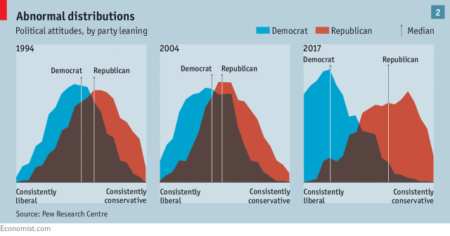I’ve written elsewhere about how The Economist doesn’t understand climate change. In their science section and the occasional editorial they stress the need for massive and urgent action, but their thinking is not joined up. Their general editorial stance remains that economic growth is the greatest good, every new fossil fuel discovery is a boon, and that largely business-as-usual politics is either desirable or inevitable.
One passage from a recent special report on France demonstrates the chasm between their enthusiasms and what is necessary for a sustainable world:
The word “factory” does not do justice to Bugatti’s state-of-the-art production site in the shadow of the forest-clad Vosges mountains in eastern France. There is no grease or grime around the assembly line. The floor is a shimmering white gloss. The airy space feels more like a museum of modern art, gleaming eight-litre engines displayed like so many design exhibits. Workers wear white gloves, as if handling treasures. In fact, they are building the world’s fastest supercar.
A Milanese engineer, Ettore Bugatti, founded a car factory in this corner of France in 1909. Germany’s Volkswagen, which later bought the brand, chose Bugatti’s historic French site to develop the Veyron, a car designed to combine elegance and speed. The French factory turned out every one of these luxury record-breaking cars after their launch in 2005. This year Bugatti unveiled a successor, the Chiron, which pushes the limits of physics and sleek design further still. The car reaches 100km (62 miles) an hour in two-and-a-half seconds and has a starting price of €2.4m. Christophe Piochon, head of the French plant, compares the exquisite craftsmanship that goes into the construction of a Bugatti car to haute couture.
This schoolboy hard-on for a product that embodies everything that is putting humanity in peril is both telling and depressing. There’s a pretty strong case that nobody should be allowed to be rich enough to own a €2.4m car. Most people in that position are probably corporate executives, and there is little reason to believe they deserve it. It does not seem that the people who are given such lavish compensation produce that level of value for their employers, and even if they did it doesn’t necessarily follow that they should get to keep it for themselves.
Beyond the issues of economic inequality, there is the fundamental inappropriateness of the technology itself. Car racing is spectacularly pointless in itself, but a race track is essentially the only suitable venue for such a vehicle. Having people driving them around city streets as status symbols demonstrates much about what’s sick in our culture.

